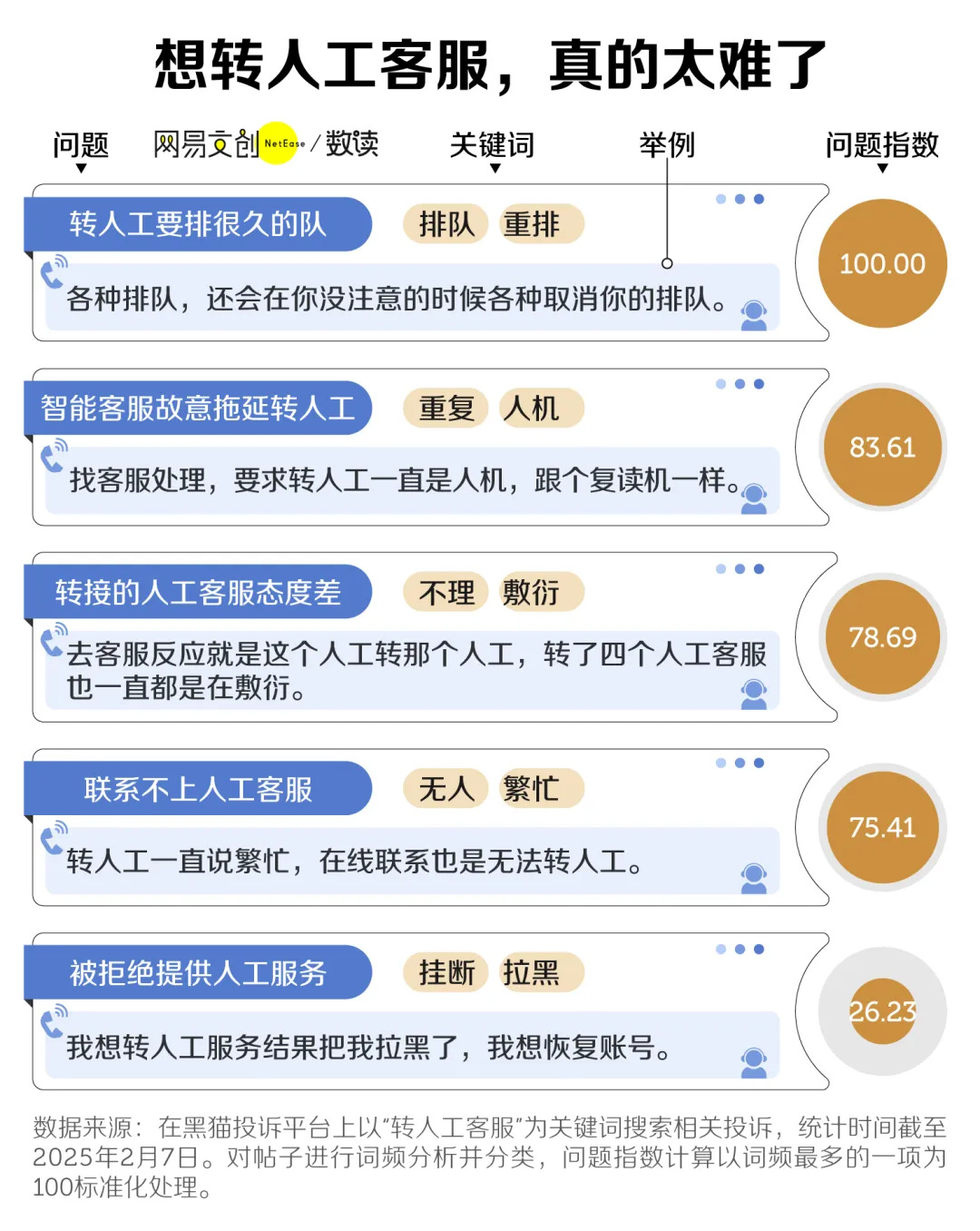ChinAI #300: Artificial Challenged Intelligence [人工智障] in China's most humble profession
How long does it take to transfer to a human customer service agent?
Greetings from a world where…
300 issues in, and the sense of discovery and wonder is still here — thanks for staying curious with me
…As always, the searchable archive of all past issues is here. Please please subscribe here to support ChinAI under a Guardian/Wikipedia-style tipping model (everyone gets the same content but those who can pay support access for all AND compensation for awesome ChinAI contributors).
Feature Translation: China's most humble profession is being forced out of work by Artificial Challenged Intelligence
Context: About 150 ChinAI issues ago, in June 2021, I started seeing the phrase 人工智障 [which I translate as “artificial challenged intelligence”] pop up in Chinese media. Bloggers used the term to make fun of billboard displays that intended to name-and-shame jay-walkers but ended up featuring faces from bus ads (ChinAI #144). Comic artists captured the frustrations of using a smart sweeping robot (ChinAI #165). This week’s feature translation (link to original NetEase DataBlog article) examines artificial challenged intelligence in the context of China’s customer service industry.
Key Takeaways: China has made a stark transition to AI customer service — a 17-fold growth in the market in the past seven years — but this has produced more customer dissatisfaction.
An iiMedia Research survey found that the most common complaints from users about customer service AIs were: inability to address personalized problems, lack of understanding about the query, and — the most interesting to me — “responses are rigid and mechanical, interaction lacks sentiment.”
On the popular Black Cat Complaint platform, there are nearly 30,000 complaints about “transferring to human customer service. One of the most flagged issues is: “intelligent customer service intentionally delaying the transfer to human customer service.”
On one hand, the growth of AI customer service represents a cost-cutting measure; on the other hand, it also reflects the reality that custom service is thankless work that people do not want to do.
Ironically, even as it has become a sector we assume is ripe for AI displacement, Liaoning Province labels human customer service representatives as “urgently needed and scarce skilled personnel” [急需紧缺技能人才], alongside welders and security guards.
It’s not easy serving as the punching bag for capitalism’s inconsiderateness. A “2023 China E-Commerce Talent Status Survey Report” found that customer service posts have the highest turnover rate in that industry.
It doesn’t get easier when there’s no path to growth. NetEase Datablog collected the median salary of customer service specialists in China’s most developed cities, derived from BOSS Zhipin data. One finding: “In Chengdu, Wuhan and Tianjin, there is essentially no difference in salary between customer service staff with 3-5 years, 5-10 years and more than 10 years of work experience.”
I want to conclude by highlighting the depth and rigor of this analysis. When people ask me for my advice on starting a China beat (whether one is a reporter, student, analyst, or researcher), my answer is simple. Read what smart Chinese people are reading about your topic. NetEase DataBlog will definitely go into my regular rotation of sources I follow.
By my count, there were 6 different data visualizations that all required some level of original research. We covered some of them in the key takeaways, but we didn’t even go into detail about how they collected stories from people who left the customer service industry by conducting a keyword search on Xiaohongshu for “customer service work is too hard.”
For the Black Cat complaint platform analysis, the article classified complaint topics mentioned in posts and then calculated an index to sort them (see image below).
FULL TRANSLATION: China's most humble profession is being forced out of work by Artificial Challenged Intelligence
ChinAI Links (Four to Forward)
Should-listen: Tools and Weapons podcast
I spoke with Microsoft President Brad Smith about my book Technology and the Rise of Great Powers on his Tools and Weapons podcast. Of all the people I’ve talked to about my book, I’d say Brad has been the most rigorous and inquisitive reader.
Should-read: Dicey Debt Collection
I had never heard of the Black Cat complaint platform before doing this week’s translation. This The Wire China article by Aaron Nicholas helped provide some excellent context.
Should-read: It’s Not Just Technology — What it Means to be a Global Leader in AI
Kayla Blomquist and Keegan McBride, for Just Security, argue that AI leadership is not just about innovation or diffusion or regulation but also about moral legitimacy: “The states that succeed in promoting their AI governance models as ethical and legitimate will have a significant advantage in defining the rules of this contested space.”
Should-read: The Paris Summit — Au Revoir, global AI Safety?
European Policy Center researchers Giula Torchio and Francesco Tasin provide a good readout of the Paris AI Summit, including the troubling lack of substantial commitments to AI safety.
Thank you for reading and engaging.
These are Jeff Ding's (sometimes) weekly translations of Chinese-language musings on AI and related topics. Jeff is an Assistant Professor of Political Science at George Washington University.
Check out the archive of all past issues here & please subscribe here to support ChinAI under a Guardian/Wikipedia-style tipping model (everyone gets the same content but those who can pay for a subscription will support access for all).
Also! Listen to narrations of the ChinAI Newsletter in podcast format here.




